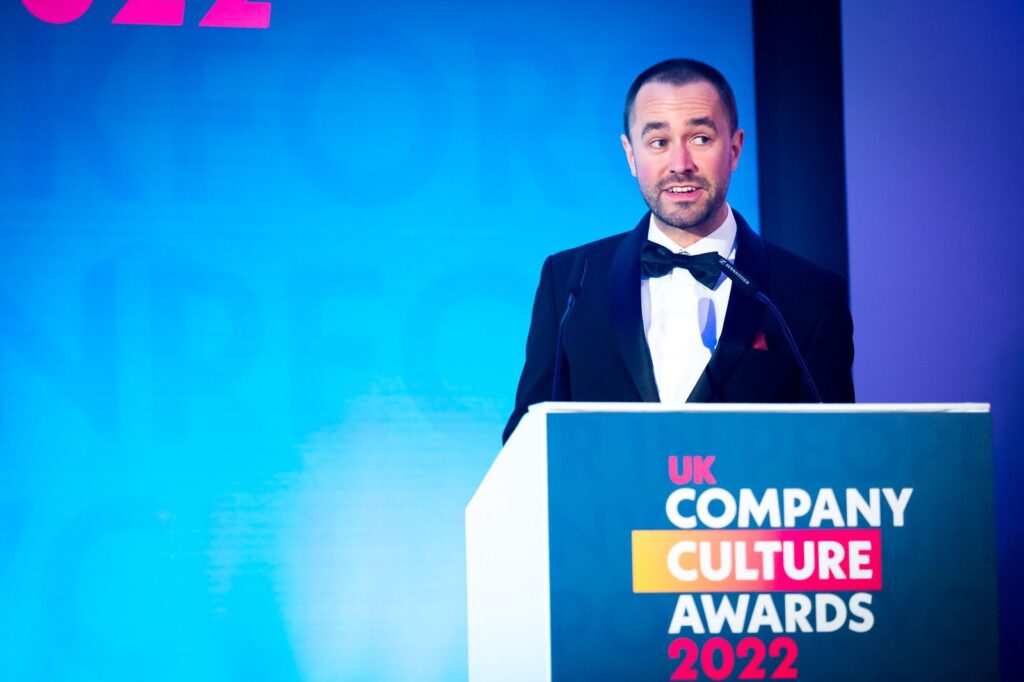Culture Audit & Strategy

Many agencies claim to have a great culture. Yet, at a certain level of leadership, it can also be difficult to really understand what’s going on in your business, particularly when you reach a certain size. It can reach the point where your culture slides away from what you initially envisaged.
But we can help! Our in-depth culture audit is designed to provide insights that help you to build long-term people-focused strategies. Using both quantitative and qualitative analysis, we get under the hood of your agency culture to expose the good, the bad and everything in between.
Ultimately, this leads to a range of practical recommendations to help get you to where you want to be.
“A strong culture increases net income by 765% over 10 years, according to a Harvard study of more than 200 companies.”
Daniel Coyle, The Culture Code
I’m a passionate believer in the impact of a strong, cohesive culture, both for an organisation’s people, but also the success of the business itself.
I’ve seen the amazingly positive impact of working on culture in agencies, and, on the flip side, I’ve seen what happens when a culture is toxic. I’ve spoken on the topic at conferences including BrightonSEO, and I regularly judge awards focused on culture, giving me unique insights into what various businesses are doing.
One of my favourite quotes comes from business guru Peter Drucker, who said: “Culture eats strategy for breakfast”. In other words, without culture, you don’t have a business, no matter how great your product or strategy!

Audit Packages
Starter
Recommended for agencies up to 30 people
12-point employee needs survey
10 x 30-minute employee interviews
Report with key findings & trends, inc. 3 detailed recommendations
1 hour presentation of findings & solutions
£2,500
Standard
Recommended for agencies up to 60 people
32-point engagement survey + eNPS
15 x 30-minute employee interviews
Report with key findings & trends, inc. 5 detailed recommendations
1.5 hour presentation of findings & solutions
£3,200
Advanced
Recommended for agencies of 60+ people
52-point engagement survey + eNPS
20 x 30-minute employee interviews
Report with key findings & trends, inc. 10 detailed recommendations
2 hour presentation of findings & solutions
£4,500
Our Agency Culture Audit Process

Phase 1: Discovery
This is where we spend the bulk of our time, and requires us to really get under the hood of your business from a people perspective.
We spend time conducting surveys that focus on core areas of employee engagement, as well as talking to some of your employees on a one-on-one basis. We ask them to do this openly, honestly, and with full confidentiality.
Phase 2: Analysis
Once the data and feedback has been collected we’ll take a look through it to identify trends and common themes that are on the minds of your people. Here, we’ll tend to focus on the items which will have the biggest impact for the wider team and business.
We generally find that there are many good things, whilst also many things that can be improved – even for the best-run, people-centric businesses!


Phase 3: Solutions
Of course, there’s little point collecting all of this great data and feedback if nothing is going to be done with it! This phase will collate the information analysed, which will then be used to form a recommended people strategy with prioritised initiatives, all designed to help you achieve your cultural objectives.
This will be presented back to you and any relevant members of your leadership and wider team.
Phase 4 (Optional): Implementation
Depending on the size and scope of your agency, you may not have enough or the right resources internally to implement the cultural initiatives recommended.
As an optional addition to our audit, we can help you to implement our subsequent solutions. Quotes will be bespoke based on complexity of the work and size of your agency.

My stance on what makes a great culture? It’s a complex area, but I’d say if you’re offering your employees autonomy, there’s purpose in their work, and they have opportunities to grow and develop, you can’t go far wrong.
Too many agencies rely on perks and gimmicks to attract people to work for them; very rarely do these enhance engagement or long-term satisfaction for employees!
Instead, focus on finding a good balance between creating an expectation for high performance, with an environment which is genuinely caring, empathetic, and psychologically safe.
Audit FAQs
Who do you need to interview?
We like to speak with a cross-section of your team, including people from all seniorities. It’s important for us to gain perspectives from all areas of the organisation, as each will tend to have challenges which are unique to them.
How do you ensure confidentiality?
It’s really important that employees feel they can speak openly and honestly about working in your organisation. For that reason we will not use names, or quote verbatim, which can make people identifiable.
Overall, we will tend to focus on themes and trends from the surveys and interviews, to address the wider cultural areas that need attention.
